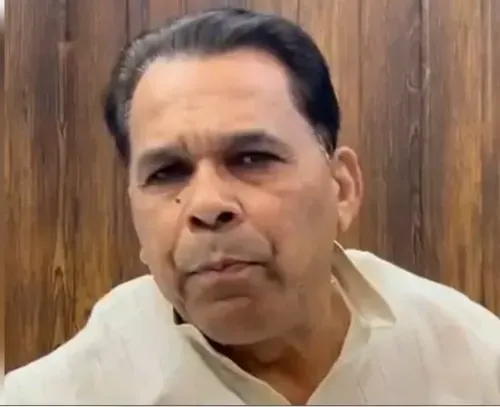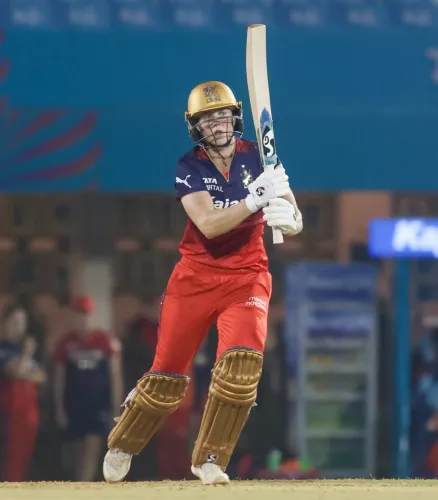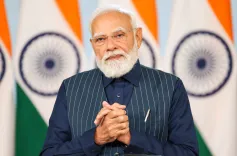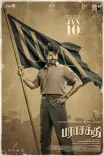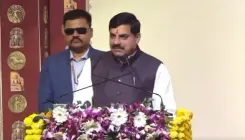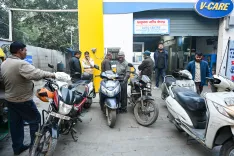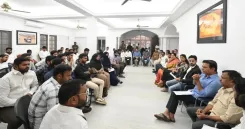Why is Access to the ‘Martyrs Graveyard’ Denied in J&K’s Srinagar?
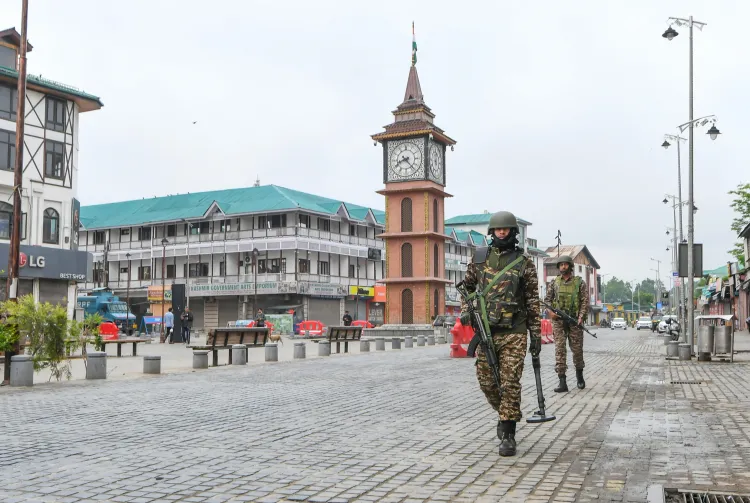
Synopsis
Key Takeaways
- Access denied to ‘Martyrs Graveyard’ for public tribute.
- Historical significance of July 13, 1931, remains pivotal.
- Political parties express outrage over the decision.
- Legal repercussions for violations of the DM’s order.
- Changes in public holiday status following political shifts.
Srinagar, July 13 (NationPress) The District Magistrate of Jammu and Kashmir’s Srinagar has refused permission to all individuals wishing to visit the ‘Martyrs Graveyard’ this Sunday, intended to honor those who lost their lives during the firing incident under the Dogra Maharaja’s regime on this date in 1931.
In response to the DM's directive, the police in Srinagar released a warning that any noncompliance with the order would result in strict legal repercussions as per the relevant laws. The general public has been urged to fully adhere to these regulations and avoid breaching the orders issued by the district authorities.
“Any infringement of these directives will invoke stringent legal consequences under applicable laws,” stated the police.
Simultaneously, National Conference (NC) spokesperson Tanvir Sadiq expressed on X, “It is incredibly regrettable that on a day of immense historical and emotional importance for the residents of Jammu and Kashmir, the District Administration has opted to prevent peaceful tributes to the martyrs of July 13, 1931 at Khawaja Bazar, Nowhatta.”
Various political factions, including the ruling NC, had requested permission from the district administration to access the ‘Martyrs Graveyard’ on July 13.
Previously, political entities such as NC, PDP, and Apni Party (JKAP) had advocated for the revival of the official observance of July 13 as ‘Martyrs’ Day’.
On this day in 1931, a crowd surged towards the central jail in Srinagar, where the secret trial of Abdul Qadeer, a Pathan Butler of a British officer, was underway.
Qadeer had delivered a passionate address at Jamia Masjid in Srinagar, urging Kashmiris to revolt against the oppressive rule of the Dogra Maharaja.
In response, jail guards fired upon the demonstrators, resulting in the deaths of 22 individuals. The remains of these 22 were interred at the Naqsband Sahib shrine's compound in the old city of Srinagar, and this burial site subsequently became known as the ‘Martyrs Graveyard’.
A public holiday was traditionally observed in Jammu and Kashmir on July 13. However, following the abrogation of Article 370 and the division of the state into two Union Territories, the official holiday list for J&K was revised, leading to the removal of both July 13 and December 5, the birthday of NC founder Sheikh Mohammad Abdullah, from the holiday roster.


